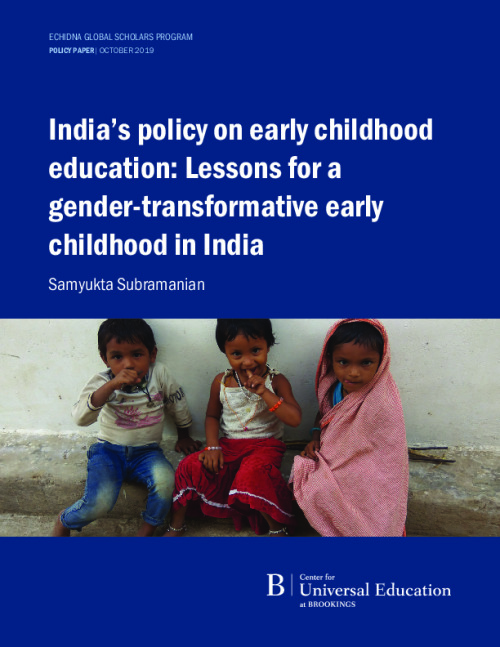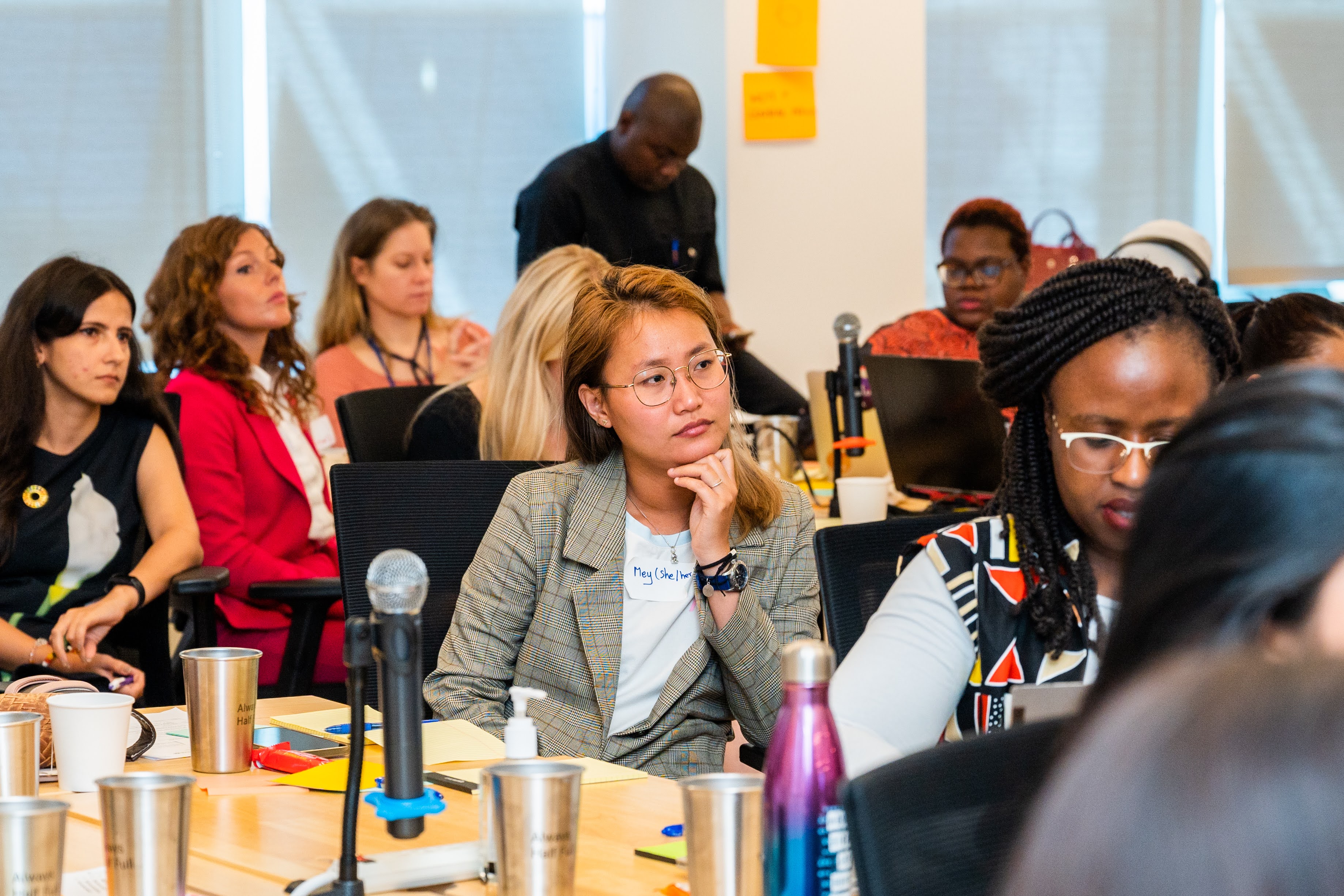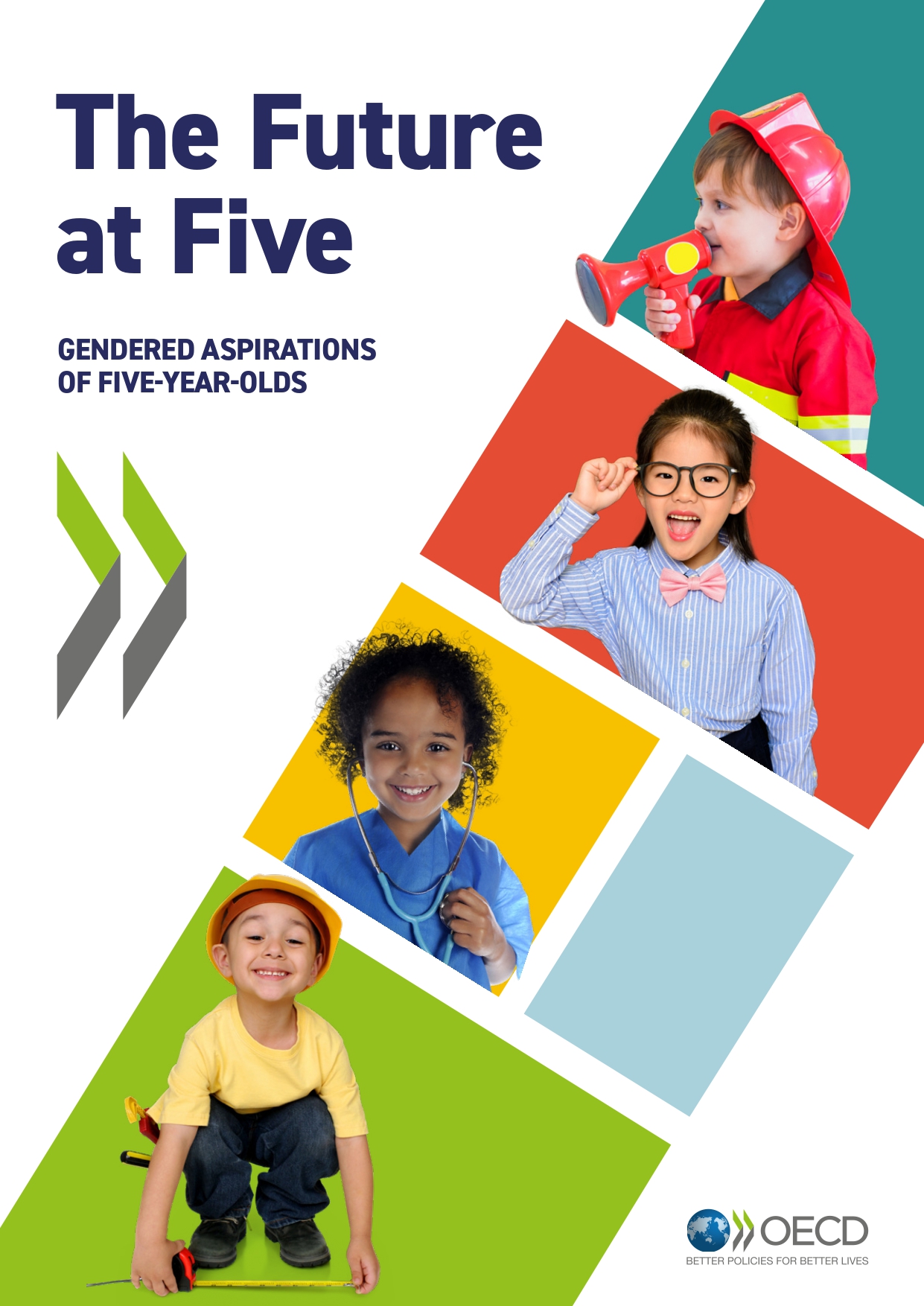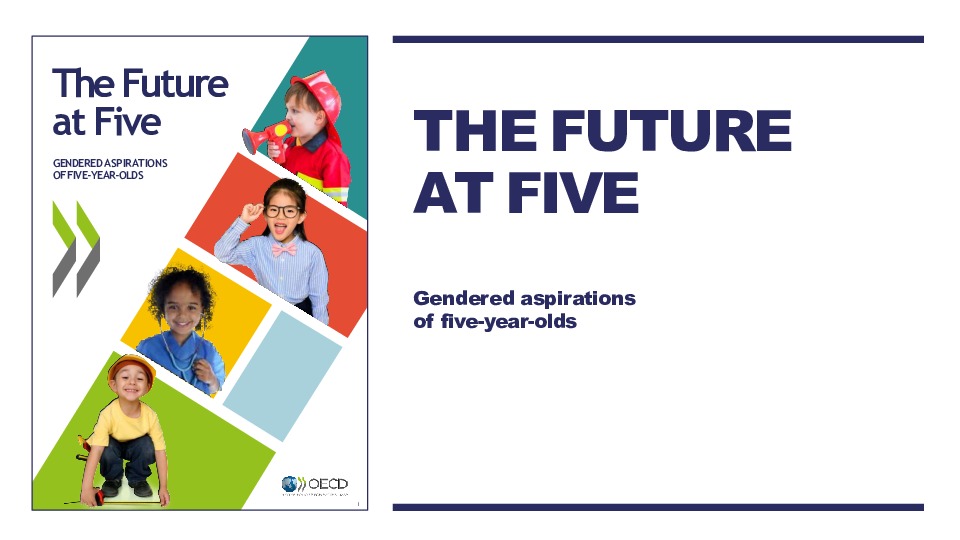Knowledge Hub
Learning and resources on gender in education

India’s policy on early childhood education
Lessons for a gender-transformative early childhood in India
The Delhi government in India recently launched its preschool curriculum for the city’s 10,897 community based preschool centers. The draft National Education Policy of India, made public in June 2019, dedicates its first chapter to the importance of early childhood care and education and the need to extend the right to education to every child who is three to six years old. It is in this context that this paper urges the government to ensure that gender sensitivity is embedded in every initiative of early childhood education (ECE)...
The Delhi government in India recently launched its preschool curriculum for the city’s 10,897 community based preschool centers. The draft National Education Policy of India, made public in June 2019, dedicates its first chapter to the importance of early childhood care and education and the need to extend the right to education to every child who is three to six years old. It is in this context that this paper urges the government to ensure that gender sensitivity is embedded in every initiative of early childhood education (ECE) in India from here onward. Based on interviews with mothers of preschool children in underresourced communities and with teachers as well as observations of governmentsupported preschool centers, this paper builds the current narrative of the preschool child’s ecosystem; notes the lack of gender-sensitive pedagogy in this space; and makes recommendations for what a gendertransformative approach in ECE in India should entail for men and boys, girls and women, so that India can strive for a more gender-equitable society in the years to come.
More to explore
Sign up to the UNGEI newsletter
 en
en 


 العربية
العربية Български
Български Hrvatski
Hrvatski Čeština
Čeština Dansk
Dansk Nederlands
Nederlands Suomi
Suomi Français
Français Deutsch
Deutsch Ελληνικά
Ελληνικά हिन्दी
हिन्दी Italiano
Italiano Română
Română Русский
Русский Español
Español Maltese
Maltese Zulu
Zulu አማርኛ
አማርኛ